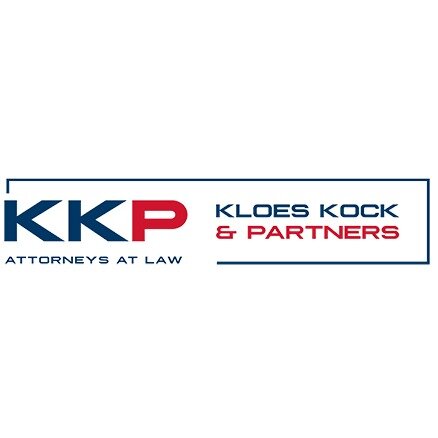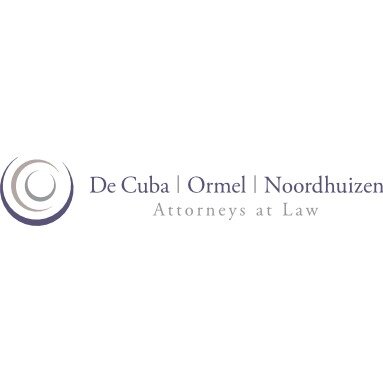Best FDA Law Lawyers in Oranjestad
Share your needs with us, get contacted by law firms.
Free. Takes 2 min.
List of the best lawyers in Oranjestad, Aruba
About FDA Law in Oranjestad, Aruba
FDA Law in Oranjestad, Aruba, refers to the regulations and legal framework governing the approval, manufacture, import, distribution, labeling, and marketing of food, drugs, and related products. The laws are established to protect public health by ensuring that food and pharmaceutical products available in Aruba are safe, effective, and properly labeled. Given Aruba's unique position as a constituent country of the Kingdom of the Netherlands and its proximity to various trade routes, following both local and international standards is vital for compliance.
Why You May Need a Lawyer
There are several circumstances where individuals or businesses might need to consult with a lawyer experienced in FDA Law in Oranjestad, Aruba:
- Launching new food or pharmaceutical products in the Aruban market
- Navigating complex import or export requirements for regulated goods
- Defending against enforcement actions or penalties issued by regulatory authorities
- Labeling or advertising products in compliance with local health and safety standards
- Seeking product approval, such as for medicines or nutritional supplements
- Pursuing or responding to product recalls
- Obtaining licenses or permits for manufacturing or selling regulated items
An experienced attorney can help interpret the law, guide you through application processes, defend your interests during inspections, and represent you in official appeals or court cases.
Local Laws Overview
Food and drug safety in Oranjestad, Aruba, is regulated by local authorities under a legal system that blends Dutch law with regulations specific to the country. Key aspects of Aruba’s FDA Law include:
- Strict requirements for the importation and sale of medicines and medical devices
- Control of pharmaceuticals through prescription and over-the-counter rules
- Clear guidelines for food handling, processing, labeling, and storage
- Licensing regulations for pharmacies, distributors, food establishments, and manufacturers
- Enforcement of labeling requirements to ensure consumer protection and transparency
- Mandatory reporting of adverse effects or contaminated products
- Alignment with certain international standards for pharmaceuticals and food safety
The primary regulatory authority involved is the Department of Public Health Aruba, which collaborates with customs, trade, and agriculture departments to enforce these laws.
Frequently Asked Questions
What products are regulated under FDA Law in Aruba?
Regulated products include foods, beverages, dietary supplements, pharmaceuticals, medical devices, cosmetics, and other health-related items.
Do I need approval to import pharmaceuticals into Aruba?
Yes. All pharmaceutical imports must be approved by the Department of Public Health Aruba, and only licensed importers can bring such products into the country.
What kind of licensing is required to operate a pharmacy?
You must obtain a specific license from the government, meet rigorous standards, and employ licensed pharmacists.
Is product labeling regulated in Aruba?
Yes. Labels must correctly identify ingredients, dosage (for medications), usage instructions, expiration dates, and manufacturer details in accordance with local laws.
Are food imports subject to inspection?
Yes, imported food is regularly inspected for safety, compliance with labeling laws, and quality control at the border and sometimes in stores or warehouses.
Can products approved in the Netherlands be sold in Aruba without changes?
No. While Aruba often follows Dutch standards, separate approval or adaptation to local requirements may still be necessary.
What are the penalties for violating FDA regulations?
Penalties can include product recalls, fines, suspension of business licenses, or even criminal charges in severe cases.
How are recalls handled?
Recalls are typically ordered by the Department of Public Health or voluntarily initiated by companies in cooperation with authorities, with public notifications issued as appropriate.
Who enforces FDA Law in Oranjestad, Aruba?
Enforcement is carried out primarily by the Department of Public Health Aruba, sometimes in conjunction with customs, police, or trade authorities.
What should I do if I disagree with a decision by the Department of Public Health?
You can appeal the decision through administrative procedures or through the courts, and a lawyer can guide you on the best approach.
Additional Resources
For those seeking guidance or regulatory information, consider contacting or referencing the following resources:
- Department of Public Health Aruba (Directie Volksgezondheid Aruba)
- Ministry of Health, Aruba
- Chamber of Commerce Aruba (for business licensing)
- Aruba Customs Department (for import-export questions)
- The Aruban Bar Association for referrals to local lawyers specializing in regulatory and FDA Law
Professional legal counsel is highly recommended for complex cases, especially those involving product approval, enforcement actions, or cross-border activities.
Next Steps
If you require legal assistance regarding FDA Law in Oranjestad, Aruba, consider the following steps:
- Gather all relevant documents, permits, correspondence, and product details
- Contact the Department of Public Health or relevant authority to clarify specific requirements first
- Consult a qualified attorney experienced in FDA Law and regulatory compliance in Aruba
- Discuss your circumstances, objectives, and any notices or issues you have received
- Follow your lawyer’s advice regarding compliance measures, responses to authorities, or preparation of appeals
Remember, early legal intervention can prevent costly penalties, business disruption, or reputational harm. Whether you are a business owner, a distributor, or an individual, understanding and complying with Aruba’s FDA Law is essential for success and public safety.
Lawzana helps you find the best lawyers and law firms in Oranjestad through a curated and pre-screened list of qualified legal professionals. Our platform offers rankings and detailed profiles of attorneys and law firms, allowing you to compare based on practice areas, including FDA Law, experience, and client feedback.
Each profile includes a description of the firm's areas of practice, client reviews, team members and partners, year of establishment, spoken languages, office locations, contact information, social media presence, and any published articles or resources. Most firms on our platform speak English and are experienced in both local and international legal matters.
Get a quote from top-rated law firms in Oranjestad, Aruba — quickly, securely, and without unnecessary hassle.
Disclaimer:
The information provided on this page is for general informational purposes only and does not constitute legal advice. While we strive to ensure the accuracy and relevance of the content, legal information may change over time, and interpretations of the law can vary. You should always consult with a qualified legal professional for advice specific to your situation.
We disclaim all liability for actions taken or not taken based on the content of this page. If you believe any information is incorrect or outdated, please contact us, and we will review and update it where appropriate.











